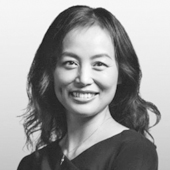Distinguished iNANO Lecture: Multifunctional Nanomaterials as a Precision Nanomedicine for in vivo Multimodal Imaging-Guided Cancer Thermo-Chemotheraphy
Professor Chunying Chen, National Center for Nanoscience and Technology, China
Info about event
Time
Location
iNANO auditorium (1593-012), Gustav Wieds Vej 14, 8000 Aarhus C

Professor Chunying Chen, CAS Key Laboratory for Biomedical Effects of Nanomaterials and Nanosafety, National Center for Nanoscience and Technology of China, Beijing, ChinaMultifunctional Nanomaterials as a Precision Nanomedicine for in vivo Multimodal Imaging-Guided Cancer Thermo-Chemotheraphy Nanomedicines offer unprecedented opportunities to reach the objectives such as promoting the precision treatment of cancer and mitigating undesired side effects. Over the past decade, precision nanomedicines have been extensively explored to fabricate theranostics that integrate multiple imaging approaches and therapeutic modalities. Among these investigations, imaging-guided photothermal therapy (PTT) has drawn considerable attention. PTT employs an efficient light harvesting agent for the localized conversion of the tissue-transparent near-infrared (NIR, λ= 700-1100 nm) light into heat to ablate cancer cells. Multimodality imaging provides PTT with real-time guidance to diagnose disease, guide procedures, monitor therapeutic response, and treat disease with greater specificity and sensitivity. We developed a novel yet simple strategy to combat cancer drug resistance using the plasmonic feature-based photothermal properties. Rather than directly killing cancer cells using nanoparticle-mediated hyperthermia, for the first time, localized plasmonic heating of gold nanorod at a mild laser power density can modulate the drug-resistance related genes. In addition, cancer stem cells (CSCs) have been identified in a variety of cancers and emerged as a new target for cancer therapy. We found gold nanorods (AuNRs) mediated photothermal treatment can selectively eliminate CSCs in MCF-7 breast cancer cells. Cellular uptake assay revealed that polyelectrolyte conjugated AuNRs could be internalized by CSCs much more and faster than non-cancer stem cells (NCSCs), which might be the main reason for the selective elimination of CSCs. We further loaded salinomycin, a CSCs inhibitor to get a synergistic CSCs inhibition. This CSCs-targeted thermo-chemotherapy platform provides a new combinatorial strategy for efficient inhibition of CSCs, which is promising to improve cancer treatment and may overcome the chemoresistance and recurrence of cancer. References:
| |
| Host: Assistant professor Menglin Chen, Interdisciplinary Nanoscience Center, Aarhus University |
